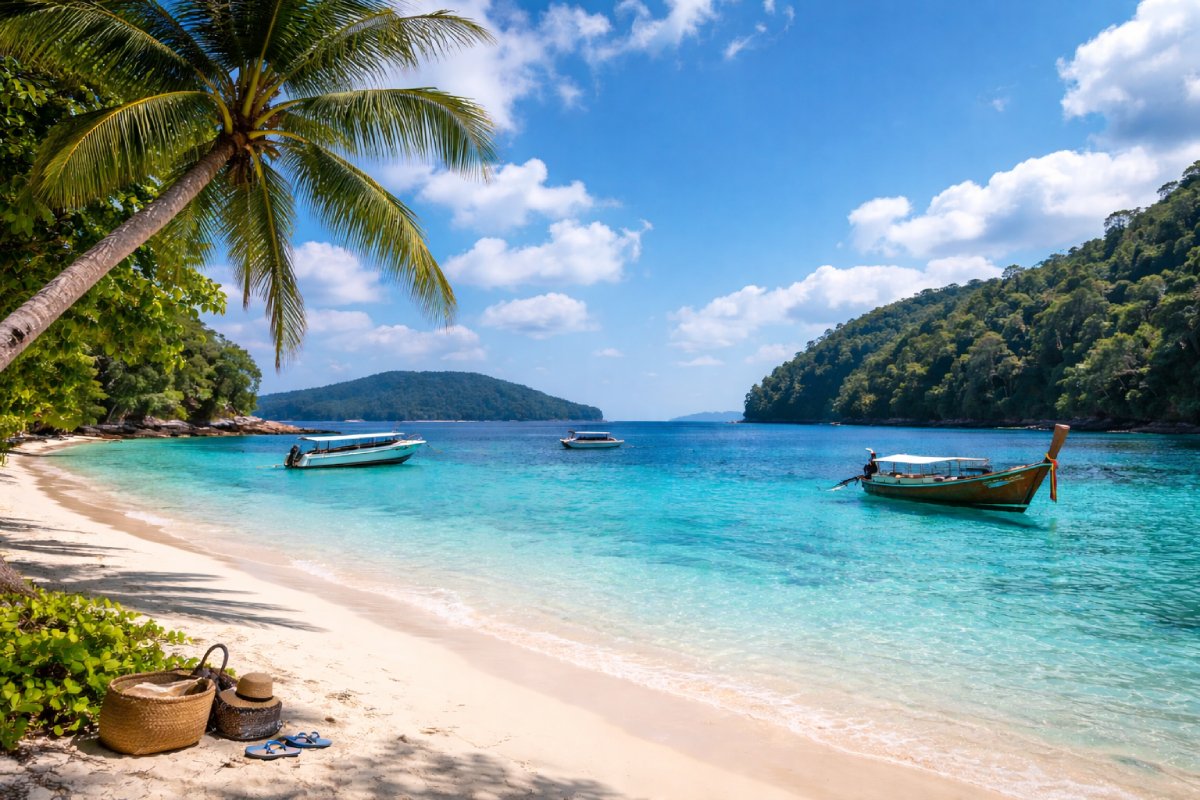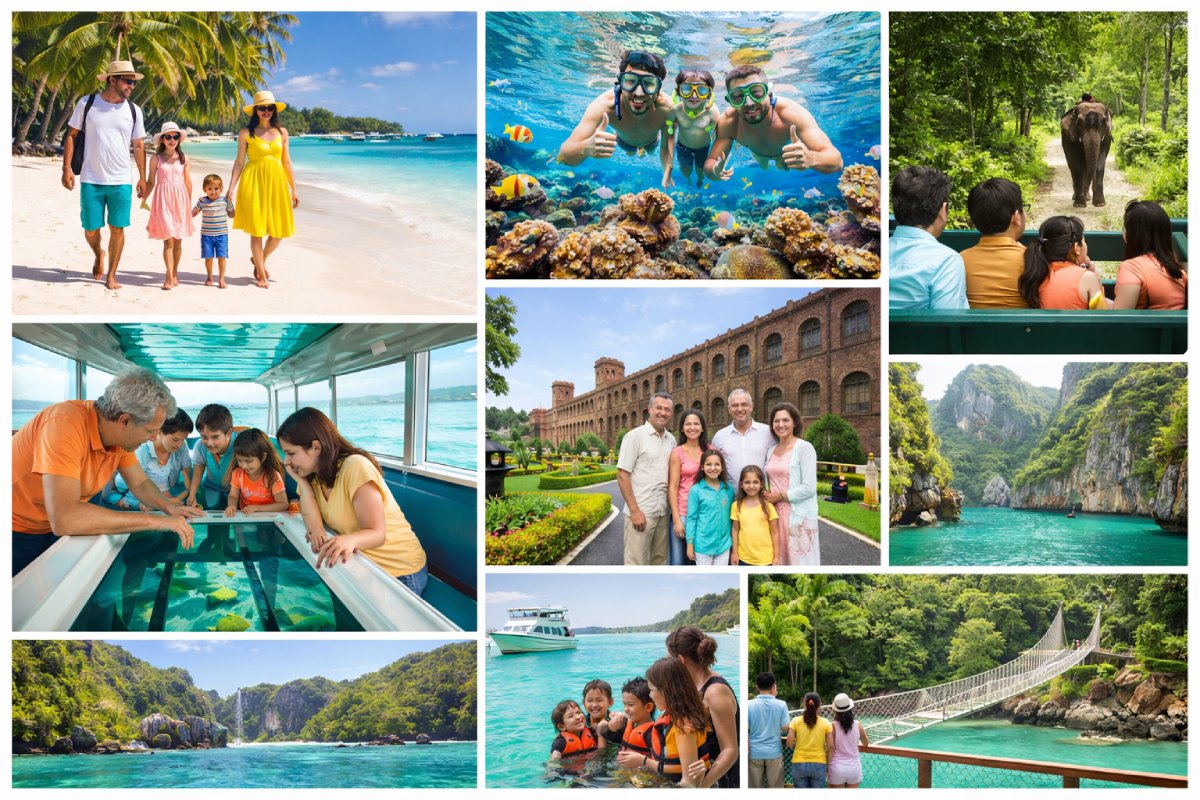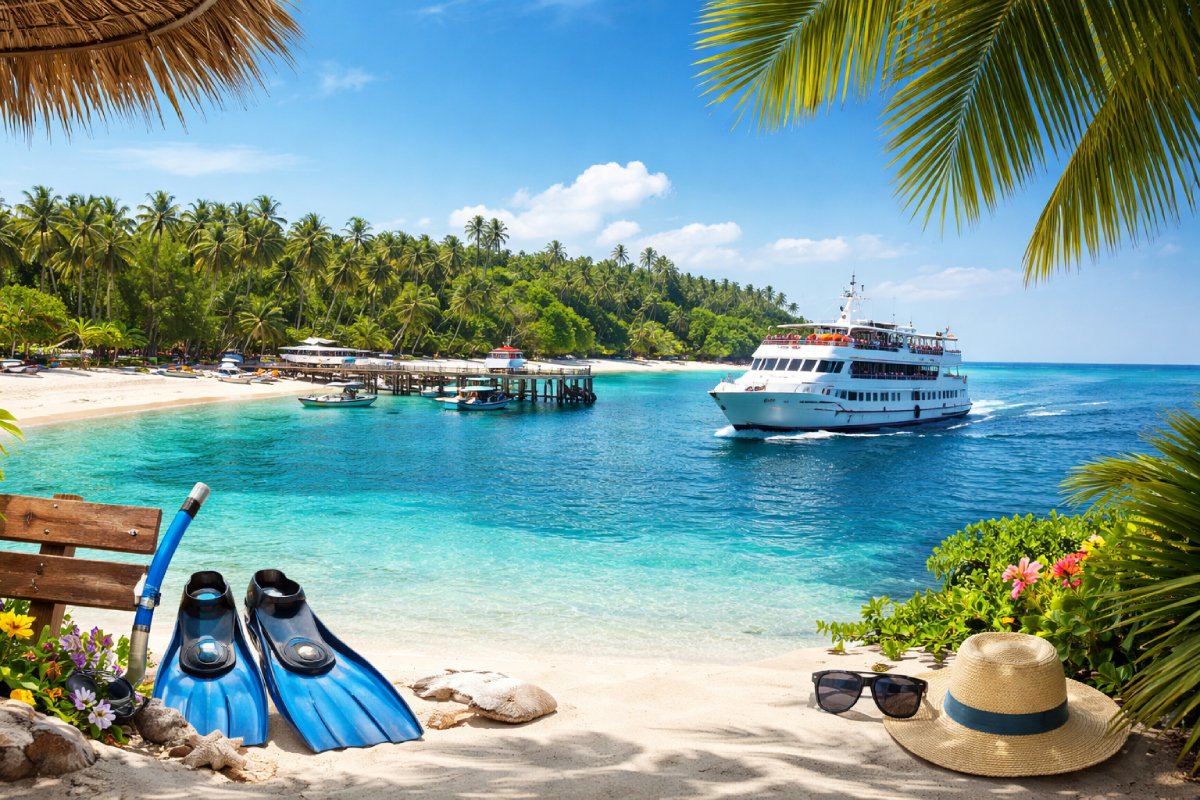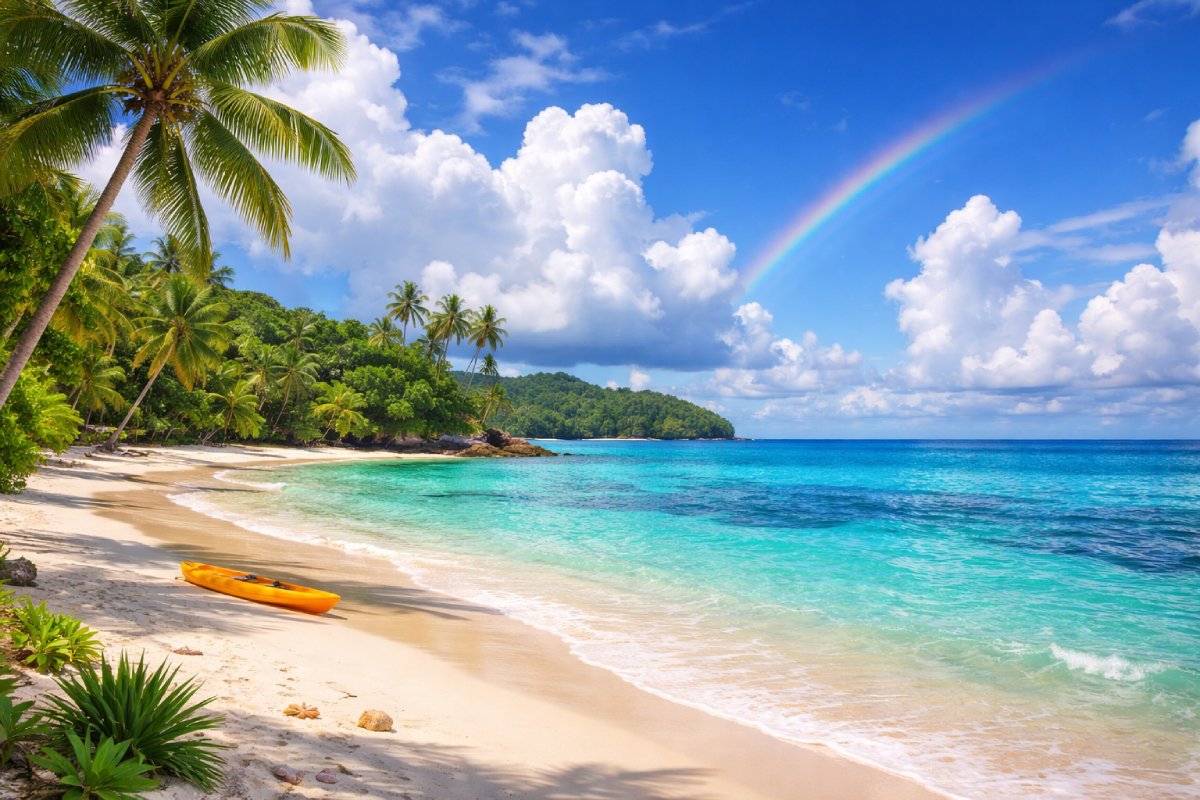
- Suresh Kumar
- 21-07-2025
- 0 Comments
Climate of Andaman and Nicobar Islands Explained: What Every Traveller Should Know
Planning a holiday trip for your family is always a special experience in itself, but at the same time, there could be numerous questions in your mind related to a destination as unordinary as the Andaman islands. It is of no wonder that climate will play a very important role in the overall tour experience.
With proper season timing and proper planning of an Andaman family tour package, the destination transforms into one of the best in India when traveling with families.
Why Timing Matters for a Family Trip to Andaman
Andaman is not a typical hill station or city destination. It’s an island chain where ferry operations, weather, and sea conditions impact travel arrangements. Families want predictable weather conditions, calm seas, and convenient sightseeing times to avoid fatigue as well as last-minute planning alterations.
The best time to visit Andaman with family ensures:
- Comfortable weather for children and seniors
- Smooth ferry transfers between islands
- Full availability of sightseeing and water activities
- Safer beach and sea conditions
That’s why understanding seasonal differences is essential before booking any Andaman and Nicobar package for family.
All about the tropical climate in Andaman and Nicobar Island
The climate in the Andaman and Nicobar Islands has a tropical, warm and humid climate all year round. With temperature ranges generally between 23 degrees Celsius and 31 degrees Celsius, the weather in these islands is considered moderate compared to mainland ranges. The predominant influence of the seas produces a milder climate than where extreme temperatures are possible.
Key climate features:
- Warm days and mild nights
- High humidity due to surrounding sea
- Seasonal rainfall instead of temperature shifts
Don't worry because that is the exact climate which is suitable for travellers and the tropical one gives the oppurtunity to explore the marine activities as well.
Best Time to Visit Andaman with Family: October to May
The best and most convenient family holiday for a family such as mine would be during the period between October and May every year. This is because this period is normally accompanied by nice weather, calm seas, and a great sky that is ideal for island-hopping.
Weather Conditions
The weather condition during this time is neither too hot or cold making it ideal for families to travel.
Why Families Prefer This Season
- Ferry services operate regularly
- Beaches are clean and accessible
- Outdoor sightseeing is enjoyable
- Water activities run smoothly
Most travelers booking Andaman family tour packages choose this season because it offers the best balance between comfort and experiences.
Winter Season (November to February): Peak Family Travel Time
The winter might be very dreamy but in real it is kinda difficult to find extreme cold. So enjoying is not a problem.
What Makes Winter Ideal?
- Perfect climate for beach visits
- Ideal conditions for snorkeling and boat rides
- Comfortable for kids and senior citizens
Because this is peak season, Andaman nicobar package for family options may sell out faster, and prices can be slightly higher. Booking in advance is always recommended during this period.
Summer Season (March to May)
Summer in Andaman gives that tropical vibe you are dreaming of. It gives a very refreashing feeling making it ideal for visitng there.
Why Summer Works Well
- Ideal for snorkeling and glass-bottom boat rides
- Less crowded than peak winter months
- Good availability of hotels and ferries
Families with school-going children often prefer summer vacations, making this a practical time to book Andaman family packages with flexible itineraries.
June to September: Monsoon Season
Rainfall brings that unique blend creating a dreamy surrounding. So, for many tourist, it is the best time while for some, it is not.
Pros of Visiting During Monsoon
- Fewer crowds
- Lower package costs
- Green and peaceful surroundings
Cons for Family Travelers
- Ferry cancellations due to sea conditions
- Limited water sports
- Unpredictable weather
Monsoon travel might be the best option for people who want a little bit adventourous. Most Andaman and Nicobar package for family itineraries are designed primarily for October to May to avoid these challenges.
Planning Smart: Climate Tips, Transport, and Local Support
Smart planning makes a huge difference in Andaman, especially due to weather sensitivity.
Helpful planning tips:
- Always keep a buffer day for ferries
- Book cabs through trusted Andaman taxi service
- Rely on the best travel agent in Andaman for real-time updates
- Avoid monsoon if you’re on a tight schedule
Local expertise matters more here than in most destinations. Weather can change quickly, and experienced agents help adapt plans smoothly without stress.
FAQs
1. What is the climate of Andaman and Nicobar Islands throughout the year?
It is tropical, warm, and humid with seasonal rainfall instead of extreme temperatures.
2. Which is the best time to visit Andaman for sightseeing and beaches?
October to February is considered the best time to visit Andaman.
3. Is the monsoon a good season to visit Andaman?
Monsoon is scenic but not ideal for water activities or island hopping.
4. Which season is best for Andaman family tour packages?
Winter and post-monsoon months are safest and most comfortable for families.
5. Does climate affect ferry and taxi services in Andaman?
Yes, rough weather can disrupt ferries, which is why reliable Andaman taxi service and local agents are important.
Conclusion
Understanding the climate of the Andaman is very necessary whilst planning, starting from what you can do when it might rain or even extreme heat, precautions to be honest is absolutely necessary. One of the thing you can do before going to the place is actually talking all the essential advices with the travel agent to make it feel extremely well and travelling an even and snooth process to begin with.
The Andaman is a paradise on earth, but it is very important to visit it during a pleasant weather. The months from June to September are the worst to visit. You will face rough sea and travel troubles. If you want blue skies and calm water and open beaches visit between December and May. You will enjoy the true beauty of Andaman with clear water and peaceful evenings.




